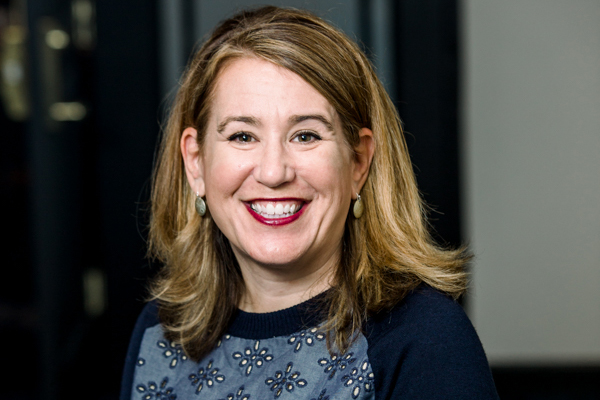We’re delighted to introduce Ann Bailey, PhD, director of CEED. Dr. Bailey worked with CEED as a research associate for six years prior to taking on the role of director in 2019. And her passion for supporting young children and the people who care for them? That goes back decades.
Q: Talk about your educational background and how you came to be interested in early childhood.

AB: I knew early on that I wanted to work with children. I started babysitting when I was 9 years old and loved it. I originally intended to be a pediatrician, but chemistry classes were not a good fit. When I took a developmental psychology class, I knew psychology was a better choice for me. I went on to get degrees in psychology, developmental psychology, and evaluation studies. I’ve spent the majority of my career providing technical assistance to either Head Start centers in Minnesota and other Midwest states or to state departments of special education and early intervention.
A deeply formative experience was the seven summers I spent with Migrant Head Start while I was in graduate school. It was one thing to sit in a classroom and talk about developmental psychological theories. I needed and wanted hands-on experience. Because I worked with the same families for all seven years, I was able to form relationships with parents and grandparents and watch their children grow and develop. I got to see how hard these families worked and how much they cared about their children’s education. I rode the bus for four hours a day, picking up children and dropping them off, so I got to know their older siblings and learn about their lives back in southern Texas.
This experience gave me insight into a culture different from my own. It also shaped my ideas about the kind of career I might want—a career in which I could work with and support young children and their families. Later, I also realized that my time at Migrant Head Start gave me admiration and empathy for early educators who work long hours for not a lot of pay because they care so deeply about young children.
Q: Why does CEED focus on research and practice that impact the youngest children, from birth through kindergarten? Why is early childhood so important?
AB: CEED was started in 1975 by Rich Weinberg, a faculty member in the University of Minnesota’s Institute of Child Development. He founded CEED as a way to “give child development away.” The mission of CEED has stayed essentially the same throughout the past 50 years, but what we know about early childhood development has changed dramatically. We have learned so much about infant brain development, infant mental health, social-emotional development, early literacy and numeracy, authentic assessment, how young children learn, the demands being placed on all early childhood professionals—I could go on and on.
Why does early childhood matter so much? We now know a great deal about the effects of trauma and adverse childhood experiences on brain chemistry and development. Research has found that adverse childhood experiences are linked to poor health outcomes, poor academic performance, a greater likelihood of incarceration, a lack of employment opportunities, and a host of other outcomes that negatively impact our society. Implementing high-quality early childhood programming for all children benefits all of us.
Q: What do you see as CEED’s major strengths?
A: One of CEED’s greatest strengths is our staff’s ability to take academic research and translate it into usable information that can inform the practices of early childhood professionals and parents of young children. In addition to getting research into practice, CEED excels at the development of high-quality, useful, and relevant professional development and program quality efforts.
The team at CEED is looking forward to being proactive in what we can offer to early childhood professionals. We believe that it’s on us to recognize what these professionals need to support their work—work that is often underpaid and underappreciated.
Q: What is something that most people don’t know about early childhood development?
A: I think the general public is better informed about child development now than ever before. That being said, parents and other adults are not always aware that they can positively influence early childhood development during everyday activities, such as bath times and meal times. Simply talking to your infant influences their literacy development, so you could describe what you’re buying at the grocery store or what’s happening during bath time. You can work on math skills while folding laundry—counting the socks, for example. You can ask questions about emotions while reading a book, drawing pictures, or discussing a child’s day. These are all important ways to support a child’s development that can be easily integrated into your existing routines.
Q: If you weren’t working at an early childhood research center, what would you be doing?
I like jobs where I get to problem solve, help people, and learn new skills, so I would enjoy reprising my role as a technical assistance specialist. Otherwise, I’ve always thought it would be fun to distribute funding to worthy organizations as director of a foundation. But if I won the lottery, I’d love to travel the world, learning new languages, learning new recipes and cooking skills, reading, and finishing crossword puzzles.



